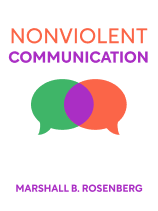

This article is an excerpt from the Shortform book guide to "Nonviolent Communication" by Marshall B. Rosenberg. Shortform has the world's best summaries and analyses of books you should be reading.
Like this article? Sign up for a free trial here .
Are you looking for Nonviolent Communication quotes by Marshall Rosenberg? What do these quotes say about empathy and compassion?
Marshall Rosenberg’s Nonviolent Communication is a book about communicating ourselves clearly and honestly and receiving empathetically. The following Nonviolent Communication quotes embody the author’s philosophy.
Keep reading for Nonviolent Communication quotes by Marshall Rosenberg and what they mean.
Nonviolent Communication Quotes by Marshall B. Rosenberg
“All violence is the result of people tricking themselves into believing that their pain derives from other people and that consequently those people deserve to be punished.”
One of the key tenets of Nonviolent Communication is the idea of taking responsibility for our feelings. When we assume emotional responsibility, we acknowledge that people and events are never the true cause of our emotions—they are just the stimulus. According to Marshall Rosenberg, our feelings stem from our own needs and expectations and not from the actions of others.
“Focus on clarifying what is being observed, felt, and needed rather than on diagnosing and judging,”
The idea of “observing without evaluating” is another key component of NVC. As the name suggests, it refers to communicating our observations without passing evaluative or moralistic judgment upon them. The philosopher J. Krishnamurti calls this “the highest form of human intelligence,” perhaps because it is so difficult to do. Our brains are natural storytellers, so we often don’t even notice when we make evaluations based on what we see, hear, and feel. But according to NVC, evaluative language is a form of moralistic judgment that can easily alienate others by reducing them to a label rather than making a human connection.
“Perhaps you are surprised that I regard praise and compliments to be life-alienating. Notice, however, that appreciation expressed in this form reveals little of what’s going on in the speaker; it establishes the speaker as someone who sits in judgment. I define judgments—both positive and negative—as life-alienating communication.”
Surprisingly, compliments are also a form of violent communication in NVC. According to Marshall Rosenberg, compliments are really a type of positive judgement. You should avoid using positive judgement labels because they give the person very little information about what they did right. If you tell your child, “You’re so smart,” they may have no idea what they did that earned them the label “smart” and be confused about what you expect of them.
“To practice the process of conflict resolution, we must completely abandon the goal of getting people to do what we want.”
The last of the Nonviolent Communication quotes explains that the NVC approach to conflict resolution is not premised on getting the other person to give in and do what we want. Reaching a compromise isn’t the goal either. Instead, NVC focuses on what both parties need and creates solutions that will meet those needs in full.

———End of Preview———
Like what you just read? Read the rest of the world's best book summary and analysis of Marshall B. Rosenberg's "Nonviolent Communication" at Shortform .
Here's what you'll find in our full Nonviolent Communication summary :
- How nonviolent communication lets you have more compassion for yourself
- Why nonviolent communication is the key to fostering authentic connections with others
- The 4 steps to expressing yourself with empathy towards others






